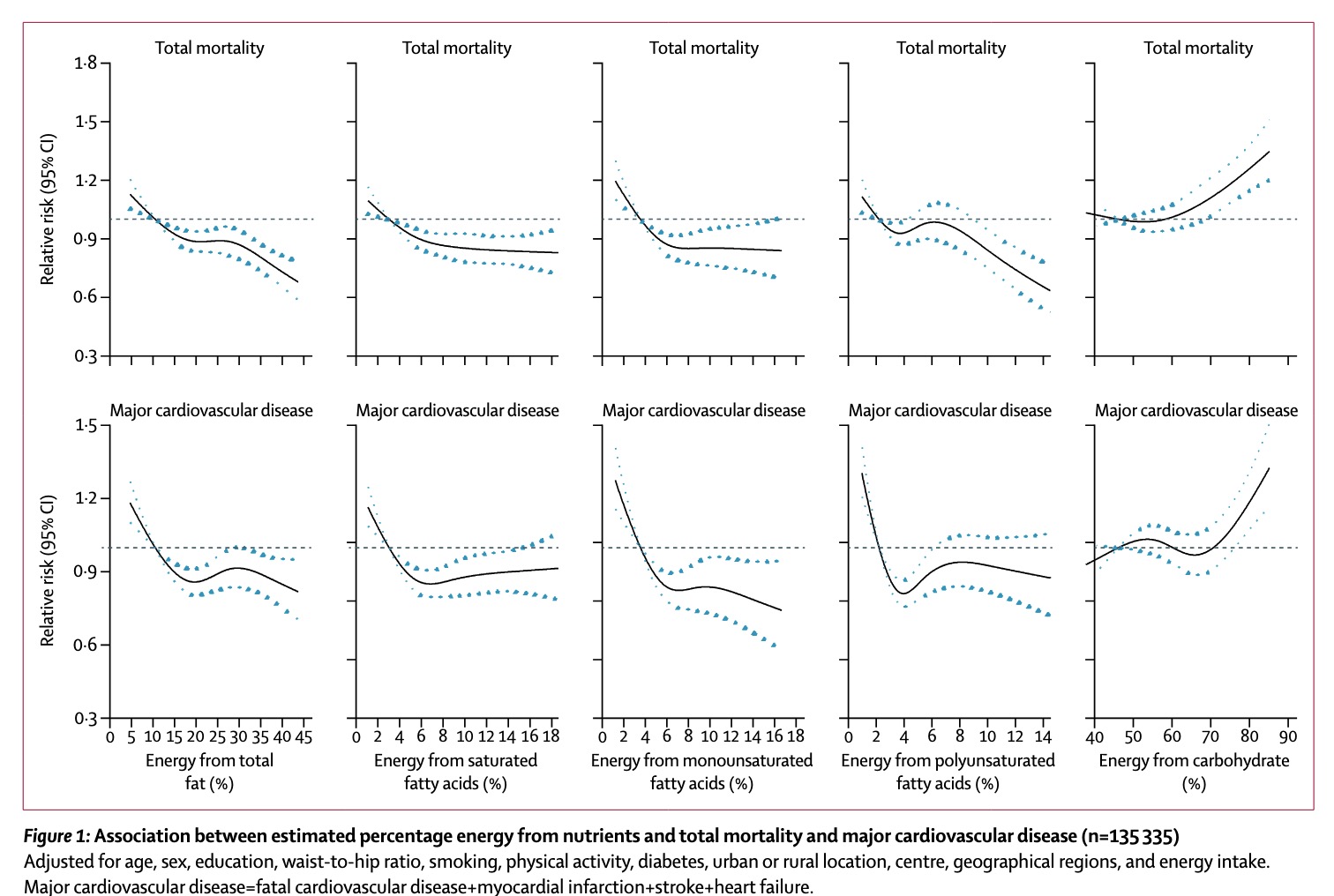However, the absence of association between low carbohydrate intake (eg, <50% of energy) and health outcomes does not provide support for very low carbohydrate diets. Importantly, a certain amount of carbohydrate is necessary to meet short-term energy demands during physical activity and so moderate intakes (eg, 50–55% of energy) are likely to be more appropriate than either very high or very low carbohydrate intakes
This conclusion seems to be outside of the data collected. They are making the link between very low carbohydrate diets (<50%, so 49%), and "short term energy demands". This is linking a preconceived notion to a misnomer term. In the low carb high fat research sphere, 49% would be considered high carb, and well outside of the level needed to maintain nutritional ketosis. It doesn't even touch upon gluconeogenesis and the fact it is established in nutritional literature there isn't a thing such as a essential carbohydrate. Note the lack of references for this statement
This also makes the assumption that there we would see a linear benefit for carbohydrate reduction, its a theory that should be tested, not assumed. (It's a step function, with nutritional ketosis/insulin sensitivity being the step)
This is a great paper, doing good research, but I think its overstepping its remit making conclusions / recommendations for properties it was not studying.
